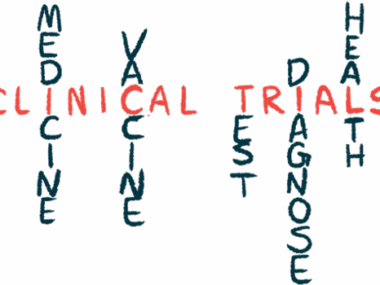Brainstorm seeking FDA’s OK to launch NurOwn Phase 3b trial
Study aims to support regulatory approval of stem cell therapy for ALS
Written by |

Brainstorm Cell Therapeutics is moving forward in its efforts to get needed regulatory clearances to launch a Phase 3b clinical trial in the U.S. to test its stem cell therapy NurOwn (debamestrocel) in people with amyotrophic lateral sclerosis (ALS) with less advanced disease.
The company has submitted to the U.S. Food and Drug Administration (FDA) a proposed amendment to its existing investigational new drug application, or IND, which is a request to regulators to test an investigational treatment in humans. An IND must be amended and reviewed each time new trial protocols are planned, or when existing ones are changed.
Brainstorm already had come to an agreement with the FDA on the Phase 3b trial’s design and analysis through a special protocol assessment, or SPA. That means the study approach meets the agency’s expectations and could support a future application seeking the therapy’s approval. The two have also aligned on other issues related to NurOwn’s manufacturing and product specifications.
“The submission of this IND amendment, together with the FDA’s agreement on our trial design under the SPA, represents a major step toward bringing NurOwn to ALS patients,” Chaim Lebovits, CEO of Brainstorm, said in a company press release.
Trial plans to test NurOwn in 200 patients with less severe ALS
NurOwn involves collecting a patient’s own mesenchymal stem cells — a type of self-renewing precursor cell that can develop into various cell types — and maturing them in the lab to boost their secretion of molecules that promote nerve cell health and survival. When given back to the patient via an injection into the spinal canal, these cells are expected to help counteract neurodegeneration to slow ALS progression.
An earlier Phase 3 study (NCT03280056) tested the therapy against a placebo in adults with rapidly progressing ALS. But that trial did not meet its main goal of showing that NurOwn could slow ALS progression, as assessed by the ALS Functional Rating Scale-Revised (ALFRS-R).
However, data suggested there may be benefits of the treatment in the subgroup of patients with less advanced disease.
The FDA discouraged Brainstorm from submitting a regulatory application, and later refused to review one that the company had submitted.
However, Brainstorm had reason to believe the study was impacted by what’s known as a floor effect associated with the ALFRS-R score. The company noted that many participants already had the lowest possible scores on ALFRS-R — indicating their inability to perform the evaluated activities. That meant there wasn’t room to detect further functionality declines and measure group differences in terms of the rate of disease progression.
That theory was backed by other analyses showing the treatment may slow disease progression in people with less severe disease.
As such, the company wanted to proceed with the application over the regulators’ objections. But when an advisory committee questioned the floor effect and agreed that trial findings didn’t provide enough evidence that NurOwn would be effective for treating ALS, the company withdrew its application and indicated it would focus its efforts on preparing for a Phase 3b trial to gather more data.
We are optimistic about a rapid review [of this submission] and are eager to initiate our Phase 3b study, which we are undertaking to support regulatory approval.
The planned two-part study is expected to enroll about 200 people with ALS. In its first part, participants will be randomly assigned to receive three injections of either NurOwn or a placebo, administered once every eight weeks over a period of 24 weeks, or about six months.
After completing the placebo-controlled part, participants will be able to transition to the trial’s second, open-label extension part, where all will receive three injections of NurOwn over another 24 weeks.
The study’s main efficacy goal will be to evaluate changes in disease progression, as assessed by ALSFRS-R, after the first 24 weeks.
Successful completion of the study’s placebo-controlled part will position Brainstorm for a regulatory submission, according to the company, which noted it will provide updates as the FDA review process moves forward.
“We are optimistic about a rapid review [of this submission] and are eager to initiate our Phase 3b study, which we are undertaking to support regulatory approval,” Lebovits said.






